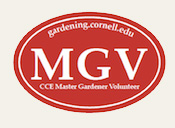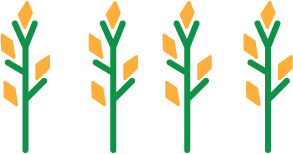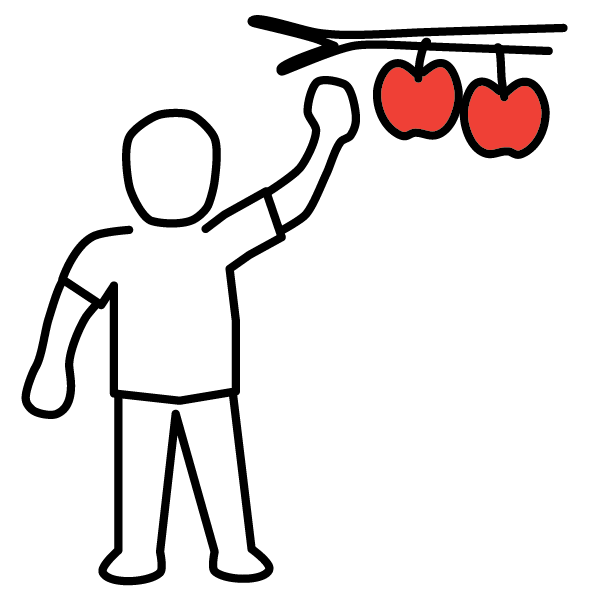Garden-Based Learning Library for Master Gardener Training 2021
Welcome! Please check the News & Updates Forum for announcements.

NEWS & UPDATES
- Look here whenever you check into the course for announcements and updates.
Welcome! Please check the News & Updates Forum for announcements.

NEWS & UPDATES
![]() New York residents rely on a wide variety of natural resources including forested mountains; aquatic environments (wetlands, marshes, estuaries, streams and lakes); and an accompanying diversity of plant and animal species, for recreation, tourism, and raw products. Communities need education targeted to their specific concerns, including the interaction of natural resources, the environment, and the economy. And as a gardener, it is important to have an understanding of how plants grow and function. We could not survive without plants and depend on them for food, fossil fuels, lumber, fibers, medicines, paper, latex, resin, cork, spices, fragrances and dyes.In this module, you will learn more about:
New York residents rely on a wide variety of natural resources including forested mountains; aquatic environments (wetlands, marshes, estuaries, streams and lakes); and an accompanying diversity of plant and animal species, for recreation, tourism, and raw products. Communities need education targeted to their specific concerns, including the interaction of natural resources, the environment, and the economy. And as a gardener, it is important to have an understanding of how plants grow and function. We could not survive without plants and depend on them for food, fossil fuels, lumber, fibers, medicines, paper, latex, resin, cork, spices, fragrances and dyes.In this module, you will learn more about:
In this module, you will learn more about:
 Gardening is a great way to produce healthy, fresh food for yourself and your community. It is a nice to get into gardening because everyone likes to eat!
Gardening is a great way to produce healthy, fresh food for yourself and your community. It is a nice to get into gardening because everyone likes to eat!
Whether you are growing in your own back yard or in a shared community garden, gardening is a way to be an ecological steward and produce nutritious food.
In this module, you will learn about:
 CCE is focused on developing capacity among citizens, leaders, and local officials so they are better prepared to address challenges and opportunities, improve quality of life, and build strong and vibrant communities. CCE works toward the long-term sustainability and well-being communities through collaborations and partnerships and promotes active and representative participation toward enabling all community members to shape their collective future. One key strategy is to increase the number of residents practicing management tactics in homes, lawns, gardens and landscapes that support environmental stewardship and a sustainable community.
CCE is focused on developing capacity among citizens, leaders, and local officials so they are better prepared to address challenges and opportunities, improve quality of life, and build strong and vibrant communities. CCE works toward the long-term sustainability and well-being communities through collaborations and partnerships and promotes active and representative participation toward enabling all community members to shape their collective future. One key strategy is to increase the number of residents practicing management tactics in homes, lawns, gardens and landscapes that support environmental stewardship and a sustainable community.
In this Module, you will learn best practices for designing and maintaining community and home landscapes including lawns, herbaceous and woody plants.
 CCE supports programs aimed at empowering individuals and communities to make sound decisions for the future through access to research, best practices, university-based resources and community education.
CCE supports programs aimed at empowering individuals and communities to make sound decisions for the future through access to research, best practices, university-based resources and community education.
Land use and residential spaces is an indicator area with the outcome that residents demonstrate knowledge and skills around ecological management of homes, gardens and landscapes. This includes best management practices and providing research-based options to solutions.
In this module, you will learn about:
Warning! Agrichemicals/Pesticides are dangerous. Read and follow all instructions and safety precautions on labels. State regulations may vary. If the information does not agree with the current labeling, follow the label instructions. The label is the law. Carefully handle and store agrichemicals/pesticides in originally labeled containers out of the reach of children, pets and livestock. Dispose of empty containers immediately in a safe manner and place. Contact your State Department of Environmental Protection or similar agency for current regulations. The user of this information assumes all risks for personal injury or property damage.
 Climate data for the last 50 years show dramatic changes in temperature and precipitation at the global, national, regional, and state levels. In New York and elsewhere, global climate change is believed responsible for more erratic weather patterns, warmer temperatures, heavier rainfall, lower snow levels, and altered season length with intensifying impact on humans, wildlife, the economy, and the environment. Cornell Cooperative Extension (CCE) is committed to educating stakeholders about this intensifying challenge and helping citizens implement the strategies that are needed to adapt to and mitigate climate change. (CCE Statewide Plan of Work)
Climate data for the last 50 years show dramatic changes in temperature and precipitation at the global, national, regional, and state levels. In New York and elsewhere, global climate change is believed responsible for more erratic weather patterns, warmer temperatures, heavier rainfall, lower snow levels, and altered season length with intensifying impact on humans, wildlife, the economy, and the environment. Cornell Cooperative Extension (CCE) is committed to educating stakeholders about this intensifying challenge and helping citizens implement the strategies that are needed to adapt to and mitigate climate change. (CCE Statewide Plan of Work)
 MGV help to prepare citizens, leaders, and local officials so they are better prepared to address challenges and opportunities, improve quality of life, and build strong and vibrant communities. Building local capacity for governance, enhancing local economies, and investing in human capital by providing research-based knowledge, public issues education, and education and training are keys.
MGV help to prepare citizens, leaders, and local officials so they are better prepared to address challenges and opportunities, improve quality of life, and build strong and vibrant communities. Building local capacity for governance, enhancing local economies, and investing in human capital by providing research-based knowledge, public issues education, and education and training are keys.
We work toward the long term sustainability and well-being of communities through collaborations and partnerships and promote active and representative participation toward enabling all community members to shape their collective future. Partnerships, based on mutual respect and trust, provide a foundation for innovative strategies and informed decision making to create positive and lasting change for communities.
 The Action Project is a scaffolded activity for participants to work on throughout the core preparation. Participants will present their work during the Project Showcase at the end of the training.
The Action Project is a scaffolded activity for participants to work on throughout the core preparation. Participants will present their work during the Project Showcase at the end of the training.
In Module One we introduced Action Project in the readings. In this section, find the steps you will take in planning and presenting your Action Project.
Thank you for participating in this course! Please take a moment to complete this evaluation upon completion of our course.
Your responses are anonymous and your feedback will be used to improve future offerings of this course. We appreciate your participation and support in improving our Master Gardener Volunteer resources!
If you have any issues with this site please use this form to contact us.